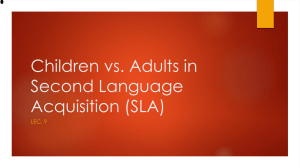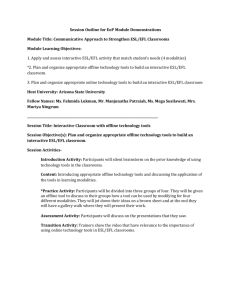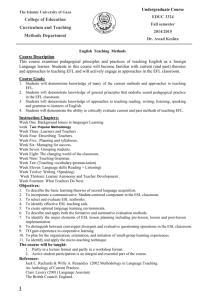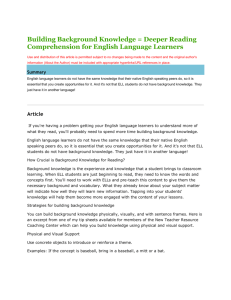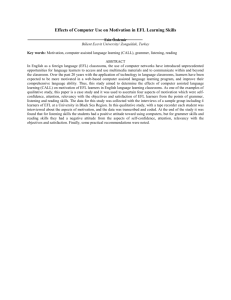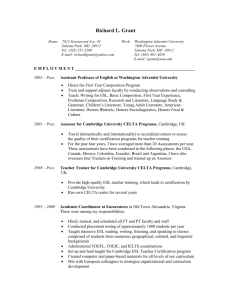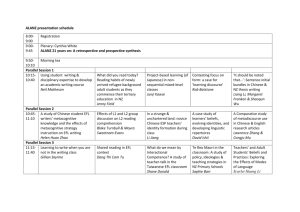Theory and Practices for Teaching English as a Second/Foreign
advertisement
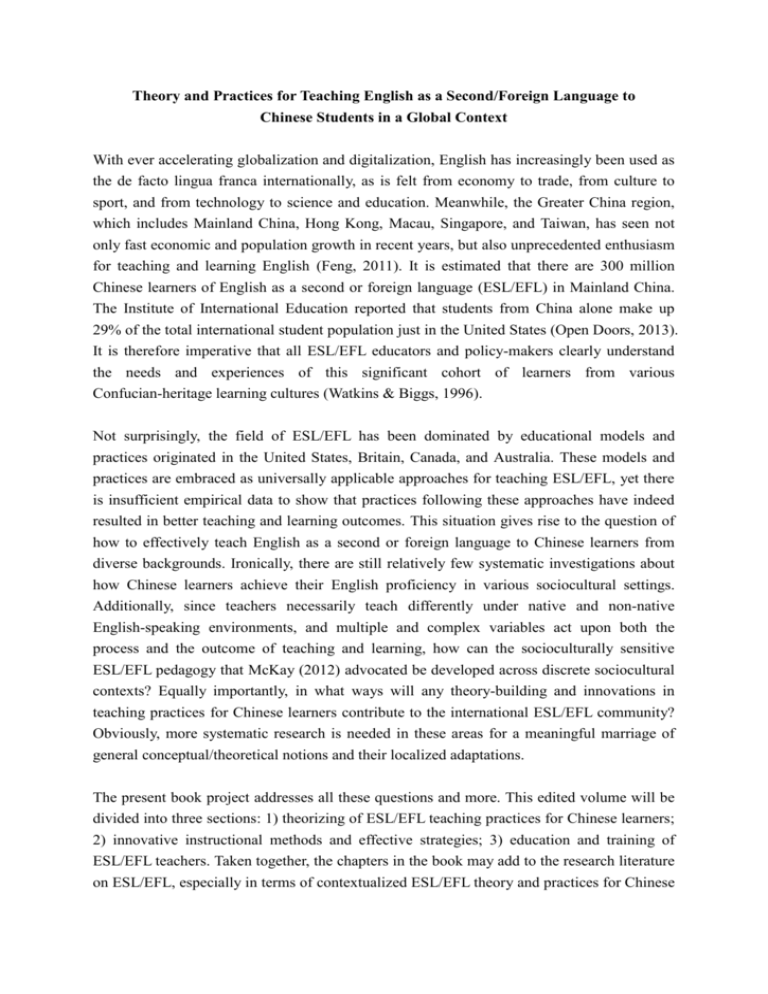
Theory and Practices for Teaching English as a Second/Foreign Language to Chinese Students in a Global Context With ever accelerating globalization and digitalization, English has increasingly been used as the de facto lingua franca internationally, as is felt from economy to trade, from culture to sport, and from technology to science and education. Meanwhile, the Greater China region, which includes Mainland China, Hong Kong, Macau, Singapore, and Taiwan, has seen not only fast economic and population growth in recent years, but also unprecedented enthusiasm for teaching and learning English (Feng, 2011). It is estimated that there are 300 million Chinese learners of English as a second or foreign language (ESL/EFL) in Mainland China. The Institute of International Education reported that students from China alone make up 29% of the total international student population just in the United States (Open Doors, 2013). It is therefore imperative that all ESL/EFL educators and policy-makers clearly understand the needs and experiences of this significant cohort of learners from various Confucian-heritage learning cultures (Watkins & Biggs, 1996). Not surprisingly, the field of ESL/EFL has been dominated by educational models and practices originated in the United States, Britain, Canada, and Australia. These models and practices are embraced as universally applicable approaches for teaching ESL/EFL, yet there is insufficient empirical data to show that practices following these approaches have indeed resulted in better teaching and learning outcomes. This situation gives rise to the question of how to effectively teach English as a second or foreign language to Chinese learners from diverse backgrounds. Ironically, there are still relatively few systematic investigations about how Chinese learners achieve their English proficiency in various sociocultural settings. Additionally, since teachers necessarily teach differently under native and non-native English-speaking environments, and multiple and complex variables act upon both the process and the outcome of teaching and learning, how can the socioculturally sensitive ESL/EFL pedagogy that McKay (2012) advocated be developed across discrete sociocultural contexts? Equally importantly, in what ways will any theory-building and innovations in teaching practices for Chinese learners contribute to the international ESL/EFL community? Obviously, more systematic research is needed in these areas for a meaningful marriage of general conceptual/theoretical notions and their localized adaptations. The present book project addresses all these questions and more. This edited volume will be divided into three sections: 1) theorizing of ESL/EFL teaching practices for Chinese learners; 2) innovative instructional methods and effective strategies; 3) education and training of ESL/EFL teachers. Taken together, the chapters in the book may add to the research literature on ESL/EFL, especially in terms of contextualized ESL/EFL theory and practices for Chinese learners. Presently, chapter proposals are invited from educators and researchers who have experiences in research, learning or teaching in any sociocultural settings involving Chinese learners. Individual chapters may address ESL/EFL teaching and learning theories situated within various contexts for Chinese learners, innovations in ESL/EFL teaching or learning that reflect educational/cultural frames or local wisdom, or ESL/EFL teacher education. All chapters need to be situated within the current research literature, be data-driven, and have new theoretical or pedagogical implications. Each chapter proposal should include: 1. A one-page chapter description; 2. A vignette, quote or example to illustrate the chapter; 3. Complete author contact information and professional affiliation. Chapter proposals are due by November 15, 2014. All proposals will be peer reviewed and authors will receive the review results by December 15, 2014. Accepted proposals should result in a book chapter of approximately 20-22 pages (including references and appendixes) due by March 15, 2015. The writing should follow the latest APA style. Currently, the publisher for the book has not been finalized. The authors whose chapter proposals are accepted will be informed of the publisher information as soon as it is available. The target publication date is spring of 2016. Deadline for chapter proposal submission: November 15, 2014. Send your proposal as an email attachment to both co-editors: Barry Bai, Ph.D. Wen Ma, Ph.D. Professional Consultant of ESL/EFL Education Co-Editor, Literacy, Language and Learning Faculty of Education Associate Professor of Education The Chinese University of Hong Kong Le Moyne College Shatin, Hong Kong Syracuse, New York 13214 Email: barry.bai@cuhk.edu.hk Email: maw@lemoyne.edu



